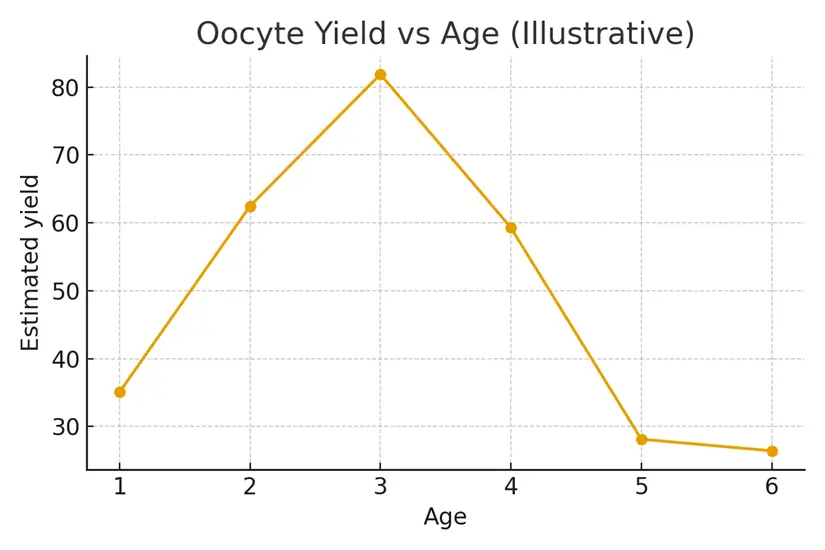
This article explains Supplements & Lifestyle — What Might Help Yield within the Egg Freezing & Fertility Preservation pathway. Many people hope that the right supplements, habits, or small lifestyle changes can improve egg quality or egg yield. While some actions truly help, others offer limited benefit or unnecessary cost.
This guide focuses on practical choices that meaningfully influence outcomes, budgets, and timelines—so you can move forward with confidence and realistic expectations.
What It Is
Supplements & Lifestyle — What Might Help Yield means understanding which evidence-backed habits and nutrients may support ovarian function, and which ones simply add stress or expense.
In plain language, this section explains:
- Where lifestyle and supplements fit in the bigger fertility-preservation picture
- What changes they can realistically influence
- How upstream decisions—like diet, sleep, or vitamin routines—affect downstream results such as follicle development, medication needs, and overall egg yield
The goal is clarity: to help you focus on what actually matters and skip what doesn’t.
Who It Helps
This framework is especially helpful for people who want to optimize their cycle without overcomplicating it. It serves those who:
- Are preparing for an egg-freezing cycle in the next 1–3 months
- Want to support egg quality for age-related or medical-related reasons
- Have labs suggesting variable or modest ovarian reserve
- Prefer to take proactive steps around health, sleep, and metabolism
- Want guidance on when supplements help—and when they’re unnecessary
Signals that this path may fit include your age, ovarian reserve labs (AMH, FSH, estradiol), antral follicle count, menstrual history, metabolic health, and previous response to stimulation.
If a medical condition requires specialized treatment (thyroid disease, autoimmune disorders, PCOS with insulin resistance), you may need a more targeted plan than general supplements alone.
Step-by-Step
A simple sequence keeps lifestyle preparation doable and low-stress:
- Initial Review
Understand your baseline: labs, cycle history, diet, sleep, stress load, and exercise patterns. - Core Supplements
Add only the essentials recommended by your clinic—often CoQ10, prenatal vitamins, vitamin D, and antioxidants. - Lifestyle Foundations
Improve sleep, hydration, movement, and blood sugar stability. - Cycle Preparation (4–8 Weeks Before)
Maintain consistent routines rather than making sudden changes during stimulation. - During Stimulation
Avoid new supplements unless approved. Focus on stable habits and low stress. - Post-Cycle Review
Evaluate what worked and what changes to keep if planning another cycle.
This timeline protects egg quality and keeps your mental load manageable.
Pros & Cons
Pros
- May support mitochondrial function and egg quality
- Non-invasive and generally low risk
- Supports overall health beyond fertility
- Often improves sleep, mood, and energy levels
Cons
- Quality supplements can be costly
- Over-supplementation may cause side effects or interactions
- Lifestyle changes require consistency, not quick fixes
- Benefits vary by age, ovarian reserve, and cycle timing
Understanding both sides helps set realistic expectations.
Costs & Logistics
Supplement and lifestyle planning includes several cost factors:
- Essential supplements: prenatal, CoQ10, vitamin D, omega-3
- Optional add-ons: antioxidants, inositol, NAC (based on labs/history)
- Nutrition consultations
- Fitness or mindfulness memberships (optional)
- Repeat labs to monitor deficiencies
- Tracking tools (apps, pill organizers, cycle calendars)
Simple checklists and budget breakdowns help avoid unnecessary purchases and surprise expenses.
What Improves Outcomes
Actions that help
- High-dose CoQ10 (if appropriate for age and labs)
- Maintaining stable blood sugar through balanced meals
- Consistent sleep (7–8 hours) and stress management
- Moderate exercise rather than extremes
- Avoiding smoking, vaping, and excessive alcohol
Actions that rarely help
- Large supplement stacks with overlapping ingredients
- Starting new supplements right before or during stimulation
- Extreme diets (keto, low-calorie, juice cleanses)
- Over-training or high-intensity workouts close to retrieval
Knowing what actually moves the needle helps you invest wisely.
Case Study
A 36-year-old preparing for her first egg-freezing cycle felt overwhelmed by conflicting supplement advice online. With her clinic, she simplified to four essentials: prenatal vitamins, vitamin D, CoQ10, and omega-3. She also built a 6-week routine of early bedtime, light exercise, and stable meals.
By keeping her plan simple and consistent, she experienced less stress and improved her follicular response compared with her earlier natural cycles. This shows how clarity and routine—not complexity—are what make a real difference.
Mistakes to Avoid
- Taking too many supplements without medical review
- Buying low-quality or unregulated brands
- Making drastic lifestyle changes during stimulation
- Ignoring sleep and stress while focusing only on vitamins
- Assuming supplements can compensate for age or low ovarian reserve
- Starting routines too late (the ideal window is 6–12 weeks before a cycle)
Avoiding these pitfalls protects your health, your budget, and your final cycle results.
FAQs
Q. Which supplements actually help egg quality?
Ans. Common evidence-supported options include CoQ10, prenatal vitamins, vitamin D, and omega-3. Your clinic may personalize doses based on age and labs.
Q. When should I start supplements before an egg-freezing cycle?
Ans. Most people start 6–12 weeks before stimulation to support mitochondrial and follicular development.
Q. Can supplements increase the number of eggs retrieved?
Ans. Supplements mainly support egg quality. Egg quantity is more influenced by age, genetics, and ovarian reserve.
Q. Are lifestyle changes during stimulation safe?
Ans. Yes, but keep routines stable. Avoid intense new workouts or new supplements once stimulation begins.
Q. Do I need every supplement recommended online?
Ans. No. Most large “fertility stacks” offer little added benefit. A simple, clinic-guided plan works best.
Next Steps
- Free 15-min nurse consult
- Upload your labs
- Get a personalized cost breakdown for your case
Related Links

Dr. Kulsoom Baloch
Dr. Kulsoom Baloch is a dedicated donor coordinator at Egg Donors, leveraging her extensive background in medicine and public health. She holds an MBBS from Ziauddin University, Pakistan, and an MPH from Hofstra University, New York. With three years of clinical experience at prominent hospitals in Karachi, Pakistan, Dr. Baloch has honed her skills in patient care and medical research.





